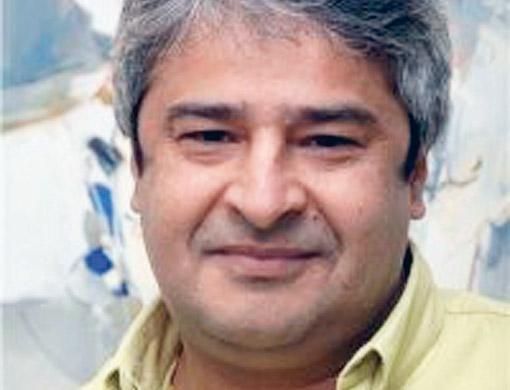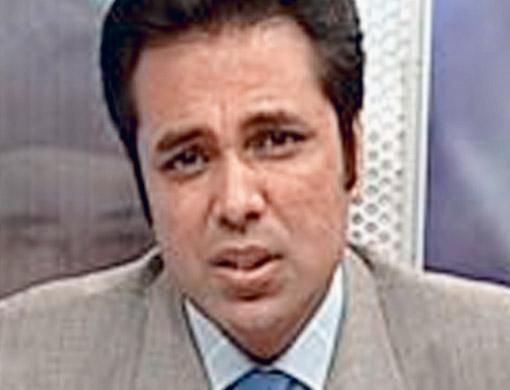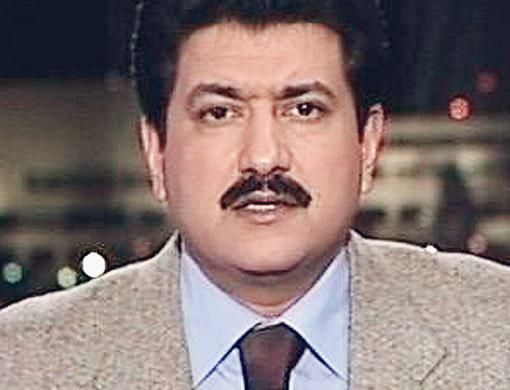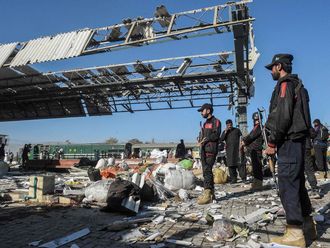Dubai: Top television anchors and journalists in Pakistan believe that the electronic media in their country 'show a mirror image' of society and the allegation of going 'overboard' during the coverage of the recent lawyers' long march was uncalled for.
The role of Pakistani private television channels once again came into the limelight as they went all-out supporting the lawyers' long march and putting immense pressure on the government for the reinstatement of the deposed judges.
Many questioned such extensive coverage alleging the media aggravated the crisis and took sides.
Live coverage of the long march by some television stations was believed to be so aggressive that the government even went to the extent of blocking their transmission in some major cities of Pakistan.
But the government's move backfired and it faced more criticism from journalists and the public's wrath.
Finally, the government had to reverse its decision but only after journalists and civil society members condemned it and threatened to take part in protest rallies against the government for imposing sanctions on the 'freedom of speech'.
Many analysts believe that it is because of the live coverage on some television stations that thousands of people came out on the road to join the rally led by Nawaz Sharif, chief of the Pakistan Muslim League (PML-N).
In the process, Sherry Rehman also resigned from the post of Federal Information Minister ostensibly in protest of the blocking of transmission of television stations and interference by some other federal ministers in her ministry.
Gulf News spoke to some top anchors, who are household names among the viewers of Pakistan private television channels, and asked them about the role the electronic media play in covering mega events such as the lawyers' long march, which even threatened to topple the government.
Hamid Mir, a renowned journalist and anchor of the live television show Capital Talk on Geo TV, the most popular private channel in the country, said that the electronic media has to play its role and there is no other way for the media but to support public demand.
"I don't believe that we overplayed the recent crisis. We are generally neutral," Mir told Gulf News from Islamabad.
He said that journalists like him are accountable to the general public and cannot take sides because people stop them on the road and question them for not playing a role in highlighting issues of national interests.
He said that the long march was an historic movement in the country as it was joined by lawyers, civil society members, opposition political parties and above all the general public including women and children.
"How can you ignore all of them?" he said.
Javed Malek, a political analyst who also anchors a popular show Insight on ARY TV, another leading private channel in Pakistan, believes that the media is just a mirror that reflects reality as it happens.
"I don't think that television channels went overboard in covering the recent judicial crisis," he said.
He said that most people in Pakistan are appreciative of the role played by the media not just in this issue, but also in general to bring information and awareness to the masses.
"I believe that media has brought about a soft social revolution in Pakistan that has empowered the masses and enabled them to have a voice and a role in governing their country."
Talking about the media curbs, Talat Hussain, who is famous for his blunt interviews and hot talk in his programme Live with Talat on Aaj Tv - a popular Urdu channel, said that democratically elected governments are also very much 'capable of taking stupid decisions' such as media curbs.
"The media is public property and the viewers can say whatever they want to say. We respect their opinion. But I don't think the electronic media went overboard. We presented an objective image and an image of what was happening in the streets. Recent media coverage of the judicial crisis had a snowball effect and helped people formed their opinion. It played as a safety net for people who started coming out on the streets in hordes to demonstrate what they wanted.
However, Amir Mateen, a political analyst and a leading journalist from a regional television channel Rohi TV, believed that some television channels did go overboard and some anchors were very subjective in their coverage but the general outcome was very positive.
"But I believe that most people came out on the roads to protest only because of the electronic media. People in Pakistan love television cameras because the media engages them to form public opinions," he added.
Mateen said the long march succeeded because the public favoured it and voiced their demands to have 'the rule of law' and justice in the country.
"Television channels showed what the masses wanted. I believe that the credit goes to the general public who put up a great show of strength and unity in one of the rare incidents of 'street power' forcing the government to make a historic decision in their favour," he said.
















